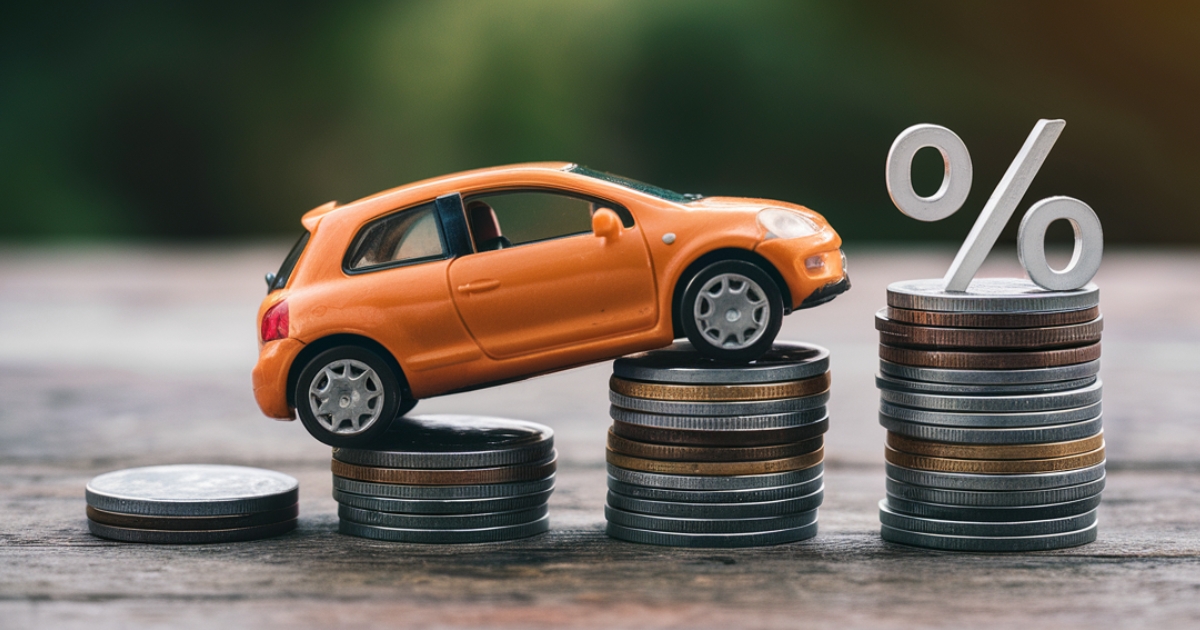
When financing a new or used car, understanding what makes an interest rate favourable can have a significant impact on your overall costs and monthly payments. With various options available, including dealership financing and bank loans, finding the best interest rates can be challenging. Knowing the benchmarks for favourable rates can help you make a well-informed decision and potentially save a considerable amount over the life of your loan. So, what qualifies as a good interest rate for a car?
Key Takeaways
- Favourable Rates: For new car loans in South Africa, a good interest rate ranges from 7% to 9%, whereas for used cars, it’s between 10% and 12%. Strong credit and a substantial deposit can help you secure these rates.
- Influencing Factors: Car loan rates depend on your credit score, the loan term, and economic conditions such as the prime lending rate and inflation.
- Securing Better Rates: To achieve the best rates, work on improving your credit score, save for a larger deposit, compare offers from different lenders, and opt for a shorter loan term.
What is an Interest Rate?
The interest rate on a car loan is the cost of borrowing money, shown as a percentage of the loan amount. When you obtain a car loan, the lender charges interest as a fee for the funds provided. This rate can either be fixed, remaining constant throughout the loan term, or variable, adjusting according to market conditions. The interest rate you receive will impact your monthly payments and the total amount repaid over the loan’s period. Simply put, a lower interest rate means you’ll pay less for your car overall.
Prime Lending Rate
As of July 2025, the South African Reserve Bank (SARB) has reduced the repo rate to 7.25%, leading to a prime lending rate of 10.75% . This adjustment influences car loan interest rates across various financial institutions.
Both fixed and variable interest rates are influenced by the prime lending rate. Consequently, changes in this rate can affect your monthly repayments, especially if your car loan has a variable interest rate. Monitoring the prime lending rate helps you anticipate potential changes in your monthly payments.
For the latest economic statistics that might influence interest rates, check out Statistics South Africa.
How Interest Rates are Determined
Interest rates for car loans are influenced by a range of factors, both personal and market-related. One of the key personal factors is your credit score; lenders use this score to evaluate your creditworthiness and level of risk. A higher credit score typically results in a lower interest rate, as it indicates less risk for the lender. Other personal considerations include your income, employment history, and the size of your deposit.
Market-related factors also significantly impact interest rates. These include the current economic climate, inflation rates, and the central bank’s interest rate policies. For example, when the economy is performing well and inflation is low, interest rates are generally lower. On the other hand, during periods of economic uncertainty or high inflation, interest rates may increase. Additionally, the type of car you are buying, new or used, can affect the interest rate, with loans for new cars often offering lower rates compared to those for used cars due to the lower risk of depreciation.
Choosing the right financing option is as crucial as negotiating a good price. Whether it’s a lease or a loan, exploring different car financing options can provide insights that help you make the best financial decision.
Understanding Car Loan Interest in South Africa
When financing a vehicle in South Africa, it’s essential to comprehend how interest affects your repayments. The principal debt refers to the amount borrowed to purchase the vehicle. Interest is charged on this amount over the loan term and is incorporated into your monthly instalments. By the end of the repayment period, you will have paid back the principal along with the accrued interest and any associated fees.
Breakdown of Total Credit Cost
The total cost of credit encompasses all expenses incurred over the duration of the vehicle finance agreement. This includes:
- Principal Debt: The initial amount borrowed for the vehicle.
- Total Interest: The cumulative interest charged over the loan term.
- Fees: This covers initiation fees and monthly administrative charges.
Therefore, the total cost of credit is calculated as:
Principal Debt + Total Interest + Fees = Total Cost of Credit
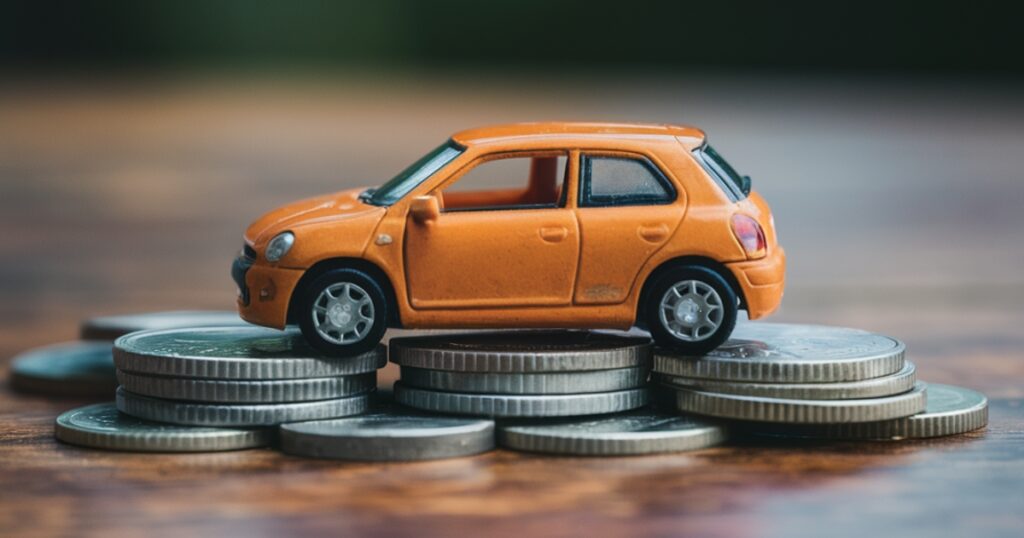
Fixed vs Linked Interest Rates
The interest rate applied to your vehicle finance agreement depends on several factors assessed during the credit evaluation process. Customers have the option to select either a fixed or linked interest rate.
A linked interest rate varies depending on decisions made by the Monetary Policy Committee (MPC), which adjusts the repo rate in response to economic indicators like inflation. As the repo rate changes, your monthly instalment will also increase or decrease. These adjustments typically occur quarterly, although the rate may remain unchanged for extended periods. When the repo rate is low, the interest charged by the bank on your finance agreement is generally more favourable.
A fixed interest rate tends to be higher but stays the same for the full duration of the vehicle finance agreement. This means your monthly repayment amount does not change, making it easier to manage your budget consistently.
Factors Affecting Car Loan Interest Rates in South Africa
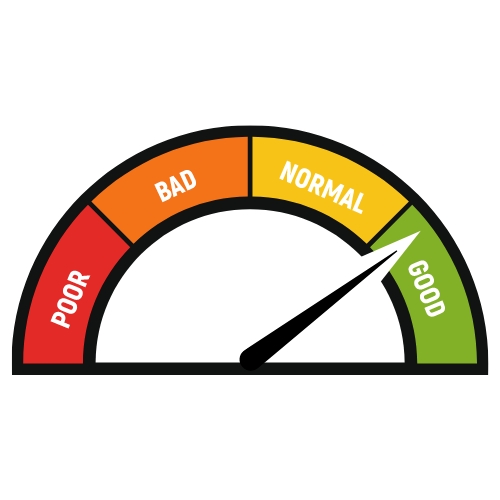
Credit Score
Your credit score is a key factor that lenders consider when setting the interest rate for your car loan. A high credit score suggests a strong history of managing credit responsibly, making you a lower risk to lenders. Consequently, individuals with higher credit scores often receive lower interest rates. On the other hand, a low credit score can indicate a higher risk, leading to higher interest rates to offset the potential for default. To secure the best rate, it’s crucial to maintain a good credit score by paying your bills on time, reducing debt, and avoiding new credit applications before applying for a loan.
An excellent credit score can significantly reduce the interest rates offered. Learn more about how improving your credit score can affect your car loan rates and potentially save thousands on your next vehicle purchase.
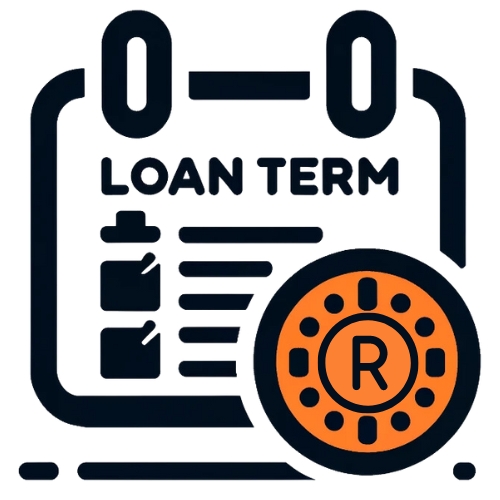
Loan Term
The duration of your car loan term impacts the interest rate. Shorter loan terms typically have lower interest rates because they pose less risk to the lender. On the other hand, longer loan terms often come with higher interest rates as the lender’s risk increases over time. While longer terms can lead to lower monthly payments, they usually result in paying more interest over the loan’s duration due to a higher interest rate and as you will need to make a greater number of monthly payments. It’s important to find a balance between affordable monthly payments and the total cost of the loan when deciding on your loan term.

Type of Car (New vs. Used)
The type of car you’re buying, new or used, can influence the interest rate on your loan. Typically, loans for new cars have lower interest rates compared to used cars. New cars are less likely to have mechanical issues and generally hold their value better than used cars, making them less risky for lenders. In contrast, used cars may depreciate more quickly and could have unknown histories, leading to higher interest rates to manage the lender’s risk. Understanding how the type of car affects financing costs can help you plan your purchase more effectively.
Learn more: about electric cars in South Africa and how they are shaping the future of transportation by visiting our detailed guide!
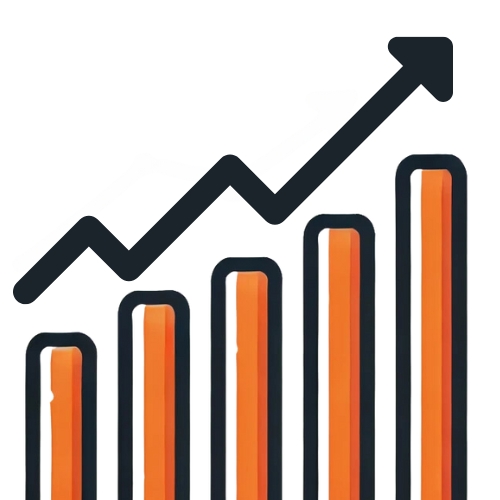
Economic Conditions
The overall economic environment plays a significant role in setting car loan interest rates. Factors such as inflation, the general state of the economy, and the policies of the South African Reserve Bank influence the base rates used by lenders. For instance, in a strong economy with low inflation, interest rates are usually lower. Conversely, during economic downturns or periods of high inflation, interest rates generally rise as lenders adjust to increased risks and borrowing costs. Keeping track of economic trends can help you time your car purchase to secure more favourable loan terms.
About Arcadia Finance
Effortlessly obtain your loan with Arcadia Finance. Enjoy the advantage of no application fees and choose from 19 respected lenders, all fully compliant with South Africa’s National Credit Regulator standards. Experience a smooth process and trustworthy options tailored to your financial situation.
What is Considered a Good Interest Rate?
A good interest rate for a car loan in South Africa is typically one that falls towards the lower end of the average range. Specifically:
- New Cars: An interest rate of 7% to 9% is considered favourable for a new car loan. These rates are usually offered to borrowers with excellent credit scores, who can show a history of responsible borrowing and repayment. New cars generally attract better interest rates due to their higher value and lower risk of short-term depreciation.
- Used Cars: For a used car loan, an interest rate between 10% and 12% is considered good. Used cars often come with higher interest rates due to the increased risk associated with their lower value and higher likelihood of depreciation. However, securing a rate within this range still represents a good deal, particularly if the borrower has a strong credit score and a substantial deposit.
Achieving these rates typically requires a strong credit score, a significant deposit, and choosing a shorter loan term. A strong credit score signals to lenders that you are a low-risk borrower, qualifying you for lower interest rates. A substantial deposit reduces the amount you need to borrow, which can also lead to more favourable loan terms. Additionally, shorter loan terms generally come with lower interest rates as they lower the lender’s risk over time.
Average Car Loan Interest Rates in South Africa
As of the latest data, the average car loan interest rates in South Africa generally range between 7% and 13% per annum. These rates can vary widely depending on several factors, including the lender, the borrower’s credit profile, and the specifics of the loan agreement. Borrowers with excellent credit scores and strong financial backgrounds are more likely to access rates at the lower end of this range. In contrast, those with lower credit scores or higher perceived risk may encounter rates towards the higher end. Additionally, whether the loan is for a new or used car can influence the rate, with new car loans often having slightly lower interest rates due to the lower risk associated with new vehicles.
A good interest rate can make or break your car financing deal. But did you know that the rates for personal loans and car finance can differ significantly? Read more about the best choice for your financial goals in our comparison on Personal Loan vs. Car Finance.

Factors That Contribute to a Favourable Car Loan Application
- Choosing a newer vehicle generally works in your favour, as banks view these as lower-risk assets due to their higher market value and manufacturer warranty. This often means you’ll spend more on routine maintenance and less on costly repairs. Although the purchase price may be higher, interest rates on new cars can be lower because of special offers and ongoing dealership promotions.
- Making a deposit upfront and borrowing a smaller amount reduces the total interest payable over the loan term. This approach not only lowers your monthly instalments but also limits the overall cost of financing the vehicle.
- Avoiding or minimising a balloon payment is another important consideration. If you’re unprepared to cover the final lump sum at the end of the contract, you could be forced to seek alternative financing, such as a personal loan, which might carry higher interest rates and increase your overall debt burden.
- Maintaining a strong credit score and a longer credit history also improves your chances of securing a better interest rate.
Current Car Loan Interest Rates in South Africa
Here is a table displaying the current car loan interest rates offered by various banks and financial institutions in South Africa:
| Bank/Institution | Fixed Rate (%) | Variable Rate (%) | Loan Term (months) | Notes |
|---|---|---|---|---|
| Standard Bank | 10.75% | 9.50% | 24 – 72 | Prime rate influenced |
| Nedbank | 11.00% | 9.75% | 24 – 60 | Rates depend on credit score |
| ABSA | 10.50% | 9.60% | 12 – 72 | Flexible terms available |
| First National Bank (FNB) | 10.90% | 9.80% | 24 – 72 | Higher rates for used cars |
| WesBank | 11.20% | 10.00% | 12 – 84 | Special offers for new vehicles |
| Capitec | 10.80% | 9.70% | 12 – 60 | Competitive rates for high credit scores |
| African Bank | 11.50% | 10.20% | 24 – 72 | Fixed rates slightly higher |
| Toyota Financial Services | 11.00% | 9.90% | 24 – 72 | Lower rates for Toyota vehicles |
| Motor Finance Corporation (a division of Nedbank) | 10.90% | 9.70% | 24 – 60 | Specialises in financing both new and used cars |
| Vehicle and Asset Finance | 10.75% | 9.50% | 24 – 72 | Offers vehicle asset financing |
Note: These rates are subject to change based on economic conditions and individual credit profiles. For the most accurate and up-to-date information, it is advisable to consult directly with the respective financial institutions.
Comparing Financing Options
Dealership Financing
Dealership financing provides the convenience of selecting and financing your car in one location. Dealers often work with various lenders to offer competitive rates and may have special promotions. However, these rates can sometimes be higher than those from other sources, so it’s important to compare offers.
Bank Loans
Bank loans offer a straightforward and transparent process, with potentially lower fixed interest rates, especially for existing customers or those with strong credit histories. Although the application process might take longer, getting pre-approved for a bank loan can give you a better negotiating position at the dealership.
Online Lenders
Online lenders provide a quick and convenient alternative with fast approval times. They serve a wide range of credit profiles and often offer competitive rates. However, it’s important to ensure the lender is reputable by checking reviews and verifying their credibility. Comparing several online offers can help you secure the most favourable terms for your car loan.
As the fuel price climbs, car affordability isn’t just about the monthly instalment; it’s about overall ownership cost. The Month of May Brings Fuel Price Hike Concerns article is a must-read before committing to any deal.
Conclusion
Securing a good interest rate for a car loan in South Africa requires careful consideration of several factors, including your credit score, the loan term, the size of your deposit, and the type of vehicle you’re purchasing. A favourable interest rate for new cars usually falls between 7% and 9%, while for used cars, it ranges from 10% to 12%. By improving your credit score, saving for a larger deposit, comparing offers from different lenders, and choosing a shorter loan term, you can significantly increase your chances of securing a competitive interest rate. This approach can help reduce your overall borrowing costs and ensure more manageable monthly repayments.
Frequently Asked Questions
A good interest rate for a car loan in South Africa generally falls towards the lower end of the average range. For new cars, an interest rate between 7% and 9% is considered favourable. For used cars, a good interest rate typically ranges from 10% to 12%. Securing these rates usually requires a strong credit score, a substantial deposit, and opting for a shorter loan term.
As of 2024, the average interest rate for a new car loan in South Africa ranges from approximately 7% to 13%. For used cars, the rate typically falls between 10% and 16%. These rates can vary depending on factors such as the borrower’s credit score, the loan term, the size of the deposit, and the overall economic conditions.
The loan term greatly affects the interest rate of a car loan. Typically, shorter loan terms come with lower interest rates as they lessen the lender’s risk. However, shorter terms also mean higher monthly payments. It’s important to find a balance that fits your financial situation, making sure you can comfortably manage the repayments.
New cars usually have lower interest rates compared to used cars due to their higher value and lower risk of depreciation in the short term. Lenders view new cars as more secure collateral, which translates into lower risk and better loan terms for the borrower. In contrast, used cars have a higher risk of depreciation and potential maintenance issues, leading to higher interest rates.
Yes, refinancing your car loan is an option if you find a better interest rate or if your financial situation improves. Refinancing involves taking out a new loan to pay off the existing one, which can result in lower monthly payments or reduced overall interest costs.
Fast, uncomplicated, and trustworthy loan comparisons
At Arcadia Finance, you can compare loan offers from multiple lenders with no obligation and free of charge. Get a clear overview of your options and choose the best deal for you.
Fill out our form today to easily compare interest rates from 19 banks and find the right loan for you.





